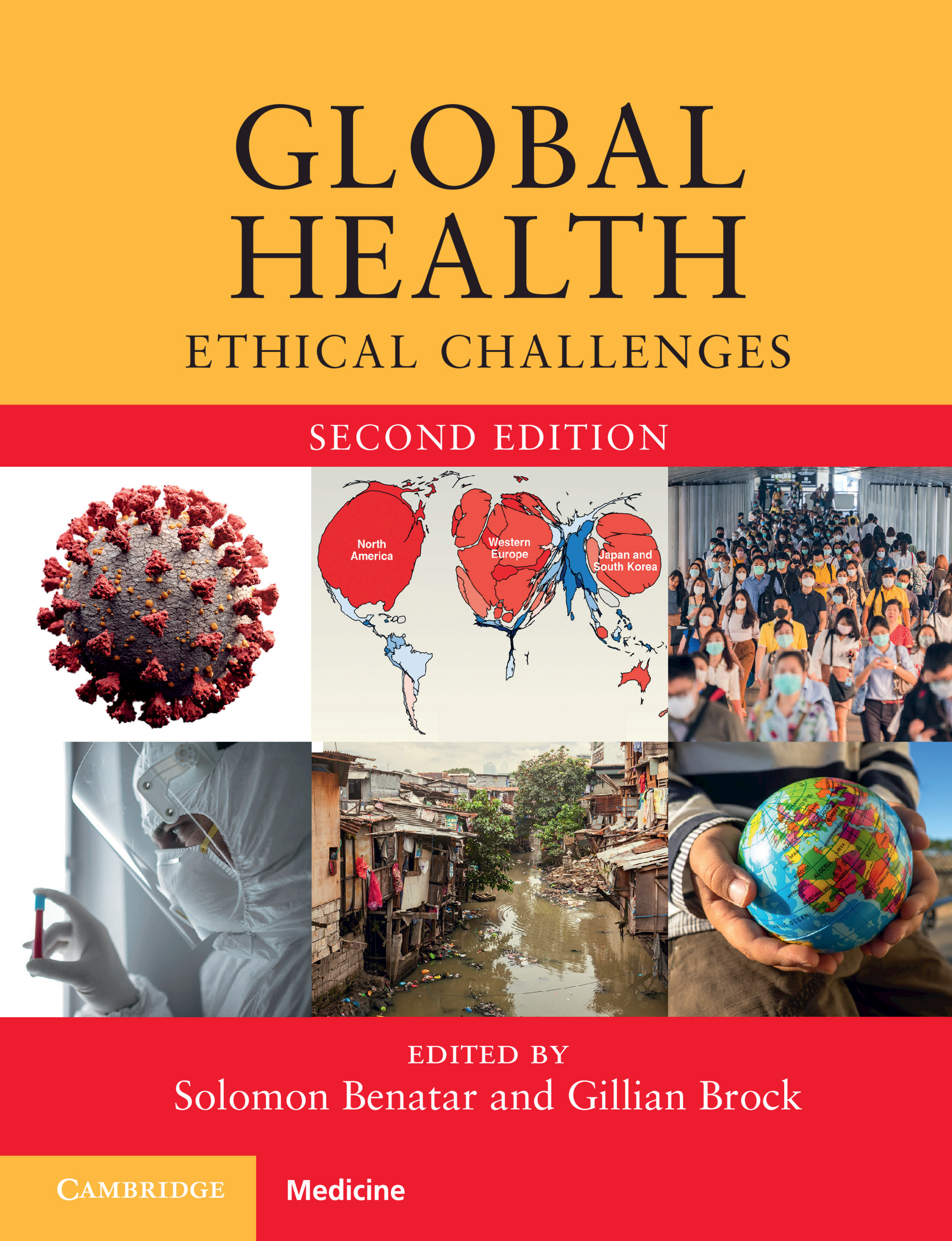Book contents
- Global Health
- Global Health
- Copyright page
- Contents
- Contributors
- Introduction
- Section 1 Global Health: Definitions and Descriptions
- Section 2 Global Health Ethics, Responsibilities, and Justice: Some Central Issues
- Section 3 Analyzing Some Reasons for Poor Health and Responsibilities to Address Them
- Chapter 11 Trade and Health
- Chapter 12 Debt, Structural Adjustment, and Health
- Chapter 13 The International Arms Trade and Global Health
- Chapter 14 Allocating Resources in Humanitarian Medicine
- Chapter 15 Development Assistance for Health
- Chapter 16 Geopolitics, Disease, and Inequalities in Emerging Economies
- Chapter 17 Neoliberalism, Power Relations, Ethics, and Global Health
- Chapter 18 Morbid Symptoms, Organic Crises, and Enclosures of the Commons
- Chapter 19 Challenging the Global Extractive Order
- Section 4 Environmental/Ecological Considerations and Planetary Health
- Section 5 The Importance of Including Cross-Cultural Perspectives and the Need for Dialogue
- Section 6 Shaping the Future
- Index
- References
Chapter 18 - Morbid Symptoms, Organic Crises, and Enclosures of the Commons
Global Health Since the 2008 World Economic Crisis
from Section 3 - Analyzing Some Reasons for Poor Health and Responsibilities to Address Them
Published online by Cambridge University Press: 04 February 2021
- Global Health
- Global Health
- Copyright page
- Contents
- Contributors
- Introduction
- Section 1 Global Health: Definitions and Descriptions
- Section 2 Global Health Ethics, Responsibilities, and Justice: Some Central Issues
- Section 3 Analyzing Some Reasons for Poor Health and Responsibilities to Address Them
- Chapter 11 Trade and Health
- Chapter 12 Debt, Structural Adjustment, and Health
- Chapter 13 The International Arms Trade and Global Health
- Chapter 14 Allocating Resources in Humanitarian Medicine
- Chapter 15 Development Assistance for Health
- Chapter 16 Geopolitics, Disease, and Inequalities in Emerging Economies
- Chapter 17 Neoliberalism, Power Relations, Ethics, and Global Health
- Chapter 18 Morbid Symptoms, Organic Crises, and Enclosures of the Commons
- Chapter 19 Challenging the Global Extractive Order
- Section 4 Environmental/Ecological Considerations and Planetary Health
- Section 5 The Importance of Including Cross-Cultural Perspectives and the Need for Dialogue
- Section 6 Shaping the Future
- Index
- References
Summary
We have previously argued that the 2008 global financial and economic crisis was a clear manifestation of an unstable and contradictory world characterized by a disjunction between (1) massive economic growth and unprecedented advances in science, technology, and medical care and (2) the widening of disparities in wealth and health within and between nations. We also argued that the global financial crisis was much more than a crisis of capitalist accumulation or a necessary self-correction aided by macroeconomic intervention and bailouts.
- Type
- Chapter
- Information
- Global HealthEthical Challenges, pp. 242 - 255Publisher: Cambridge University PressPrint publication year: 2021
References
- 2
- Cited by

